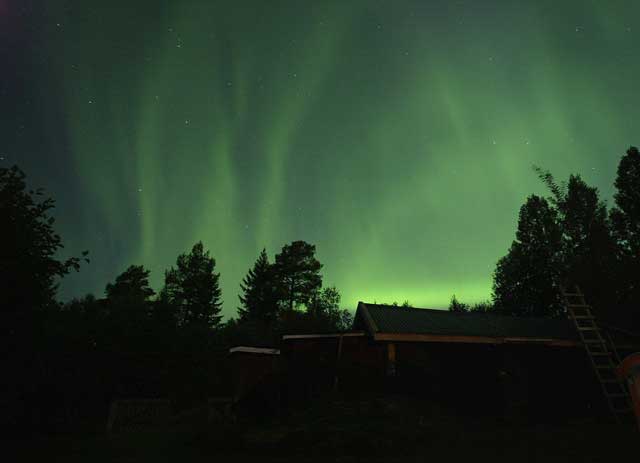Northern Lights may be seen in Britain tonight
A coronal mass ejection two days ago could make the aurora visible

Your support helps us to tell the story
From reproductive rights to climate change to Big Tech, The Independent is on the ground when the story is developing. Whether it's investigating the financials of Elon Musk's pro-Trump PAC or producing our latest documentary, 'The A Word', which shines a light on the American women fighting for reproductive rights, we know how important it is to parse out the facts from the messaging.
At such a critical moment in US history, we need reporters on the ground. Your donation allows us to keep sending journalists to speak to both sides of the story.
The Independent is trusted by Americans across the entire political spectrum. And unlike many other quality news outlets, we choose not to lock Americans out of our reporting and analysis with paywalls. We believe quality journalism should be available to everyone, paid for by those who can afford it.
Your support makes all the difference.Scientists monitoring solar activity believe a mass ejection of particles from the sun during the last two days could mean people in some parts of Britain are treated to a rare glimpse of the Northern Lights this evening.
The Aurora Borealis, or the Northern Lights, is caused by the collision of energetic charged particles with atoms in the high altitude atmosphere. Researchers say the sun fired out a coronal mass ejection (CME) two days ago into space, which is sending a "modestly" strong solar flare towards earth, and this in turn is expected to cause a geomagnetic storm.
This could allow people in the north of the UK to see the aurora tonight and possibly tomorrow evening.
The NOAA NWS Space Weather Prediction Center said on their Facebook page a CME was still approaching, but they could not predict an exact time people could expect to see the aurora.
Professor Jim Wild, a space scientist at Lancaster University said there was a reasonable chance of seeing the aurora tonight - providing the weather is calm and skies are clear.
"It normally sits on the edge of the arctic circle in northern Norway. For it to come down to the UK you need a lot of solar activity" he explained. "It should arrive at around midnight tonight - plus or minus a few hours.
"But if the geomagnetic storm is weak, it could push the aurora further south."
Dr Steve Marple, a researcher at Lancaster University and a member of the Aurora Watch UK research team said the further north in Britain people are, the better chance they have of seeing the aurora.
He advised: "You want to find somewhere dark, away from street lights and somewhere with good views to the north such as up a hill, so that the northern horizon is lower."
In 2013, Nasa predicted winter would be another "solar maximum", meaning increased cosmic activity and better chances of seeing those notoriously elusive displays of ethereal red and green lights.
For real-time aurora alerts and geomagnetic activity, visit http://aurorawatch.lancs.ac.uk/.
Join our commenting forum
Join thought-provoking conversations, follow other Independent readers and see their replies
Comments